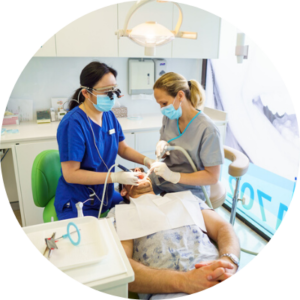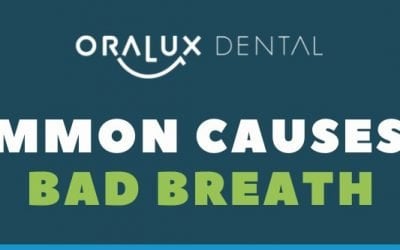Lesser-Known Sleep Disorders: Parasomnias, Sleepwalking, Teeth Grinding, and More
There are more than 60 known sleep disorders currently defined by the American Academy of Sleep Medicine, including several rare, but surprisingly common, conditions called parasomnias, or extreme sleep disorders. These lesser-known conditions can surface along with more common problems, such as sleep apnea, or by themselves.
As strange as these disorders may seem, they affect at least 20 million Americans. “People are capable of any type of behaviour in sleep. All the basic instincts—sex, eating, and aggression—can come out,” says Carlos H. Schenck, MD, senior staff psychiatrist at the Minnesota Regional Sleep Disorders Center and author of Sleep: A Groundbreaking Guide to the Mysteries, the Problems, and the Solutions. Here are some general descriptions and guidelines.
Narcolepsy

Symptoms: “Sleep attacks,” or falling asleep during the day, cataplexy (sudden weakening of muscles), sleep paralysis, and hallucinations while falling asleep or waking up.
When to see a specialist: As soon as you experience any of the symptoms on a regular basis. Not only can narcolepsy result in dangerous situations, but there is also an increased risk for REM sleep behavior disorder (RBD), which involves violently acting out dreams.
Treatment: Stimulants, such as Modafinil, are used to help you stay awake during the day. Tricyclic antidepressants are also used to suppress REM sleep and treat cataplexy.
Sleep Talking
Symptoms: Talking out loud during sleep. This can range from senseless mumblings to angry, vulgar rants. It can occur by itself or in addition to REM sleep behaviour disorder, sleepwalking, sleep terrors, and sleep-related eating disorders. The tone of voice and type of language may differ from normal speech.
When to see a specialist: It is harmless, but in the event that it is emotional or vulgar, you may want to see a sleep specialist.
Treatment: There is no cure, but sleep talking generally declines if you are well-rested, haven’t consumed alcohol, and have a normal sleep schedule.
Sleepwalking

Symptoms: Getting up from bed while you are asleep and performing either routine or strange actions. Your chance of being a sleepwalker can more than double if one or both parents have had episodes. Sleepwalkers are difficult to wake up and often have little or no recollection of their actions.
When to see a specialist: Sleepwalking in children is relatively common, but it doesn’t always require medical treatment. More than 4% of adults suffer from sleepwalking. If the episodes become dangerous or uncomfortable, you should see a sleep specialist.
Treatment: Obtaining regular and sufficient amounts of sleep, avoiding alcohol in the evenings, and dealing effectively with stress. Self-hypnosis and the use of relaxation techniques. Benzodiazepines, such as Klonopin (generic name clonazepam), may also help treat sleepwalking.
Sleep Terrors
Symptoms: Sitting up in bed, thrashing movements, screaming, sweating, heavy breathing, and violent actions. Unlike nightmares, people who suffer from sleep terrors remain asleep and rarely remember their dreams the next day. Sleep terrors are most prevalent in young children but affect more than 2% of adults. They can be spontaneous or affect adults who suffer from bipolar and anxiety disorders.
When to see a specialist: Though they are fairly normal for children, if sleep terrors continue in adulthood, it may benefit an adult to seek medical help.
Treatment: Sleep terrors can be caused by stress, sleep deprivation, and alcohol abuse. The best treatment is proper sleep hygiene and stress management, although benzodiazepines and antidepressants such as imipramine, may also be prescribed.
Sleep Paralysis

Symptoms: Paralysis when falling asleep (hypnagogic) and waking up (hypnopompic), lasting for anywhere from 30 seconds to longer than five minutes. You may be unable to move your arms, legs, body and head, and may even be unable to speak. It is often accompanied by hallucinations.
When to see a specialist: Though sleep paralysis has not been linked to health problems, consult a doctor if you experience repeated episodes. It is often a sign of narcolepsy and can lead to anticipatory anxiety about sleeping.
Treatment: Behavioral treatment includes changing your sleep position and avoiding naps. Tricyclic antidepressants can be prescribed, especially if you suffer from narcolepsy.
Nightmares
Symptoms: Unpleasant dream sequences that wake you from sleep, often leading to feelings of anxiety, fear, anger, and embarrassment.
When to see a specialist: Though very common, you should see a sleep therapist if your nightmares consistently disrupt your sleep.
Treatment: Because nightmares can be linked with psychological trauma, psychotherapy and psychoanalysis are commonly used as a treatment, and medications are also available.
Bruxism or Teeth Grinding

Symptoms: As the jaw contracts during sleep, teeth can grind. Awakening with tooth, jaw muscle, and mouth pain, a well as sore gums, can be a sign of teeth-grinding.
When to see a specialist: Grinding can cause severe dental damage. See your dentist as soon as you have symptoms.
Treatment: Use of cigarettes and caffeine before sleep and stress can increase incidences. Plastic oral appliances, fitted by a dentist, are typically used to prevent damage.
Advanced/Delayed Sleep Phase Syndrome
Symptoms: Sleep patterns occur before or after the times that most people sleep. In advanced sleep phase syndrome, patients wake early in the morning and have trouble staying awake in the evenings. In delayed sleep phase syndrome, patients are up well into the early morning and have trouble functioning in the morning.
When to see a specialist: See a doctor if this issue if affecting your work or school life.
Treatment: A sleep doctor will be able to determine factors that may intensify this problem, such as not getting enough natural light during the day. Treatment ranges from taking melatonin to behavioural counselling. Chronotherapy, shifting your bedtime a few hours later each day until you reach a normal sleep schedule, is commonly used to treat delayed sleep phase syndrome.
Sleep Starts
Symptoms: As the body shifts into the first levels of sleep, muscles can contract with sharp, sudden jerks. An audible cry or a sensation of falling may accompany the movements.
When to see a specialist: Sleep starts are very common, occurring in about 60% to 70% of people. You only need to see a doctor if the jerks, or your fear of experiencing them, keep you (or your bed partner) from getting adequate sleep.
Treatment: A sleep doctor will try to determine whether underlying conditions are affecting your ability to stay asleep, such as sleep apnea, periodic limb movement disorder, or a mental health condition.
REM Sleep Behaviour Disorder (RBD)
Symptoms: Acting out vivid dreams as your body enters REM-stage sleep. These actions may include shouting, swearing, flailing, grabbing, punching, kicking, and jumping, and episodes tend to get worse over time. It is usually easy to wake someone with RBD (unlike those who sleepwalk or have sleep terrors), and they can easily recall clear details of their dreams.
When to see a specialist: As soon as symptoms occur. RBD is often ignored for years, and at some point, it is likely to result in an injury either of the person dreaming or their bed partner.
Treatment: Medications such as Klonopin (generic name clonazepam) are often used, as well as taking bedroom safety precautions.
The American Academy of Sleep Medicine has more information on these and other secondary sleep disorders at its patient website, SleepEducation.com.
While it’s relatively normal to experience occasional strange behaviour during sleep, you should see your doctor if the problem causes injury or the risk of injury or begins to affect your daytime life. “I’ve had patients who would rather tie themselves to the bed every night than tell a doctor that they’re having violent episodes or sexual behaviours during sleep,” says Dr Schenck. “Many do not realize that effective treatments are available.”
Click here to read the original article
Note: All content and media on the Oralux Dental website and social media channels are created and published online for informational purposes only. It is not intended to be a substitute for professional medical advice and should not be relied on as health or personal advice.
Services We Mentioned
Related Articles
Common Causes of Bad Breath
Bad breath is usually caused by poor dental habits, infections, the foods you eat and unhealthy habits such as…
How to Eat Your Daily Vitamins and Minerals
Though the morning chewable may be tasty, to get the recommended amount of vitamins and minerals every day…










